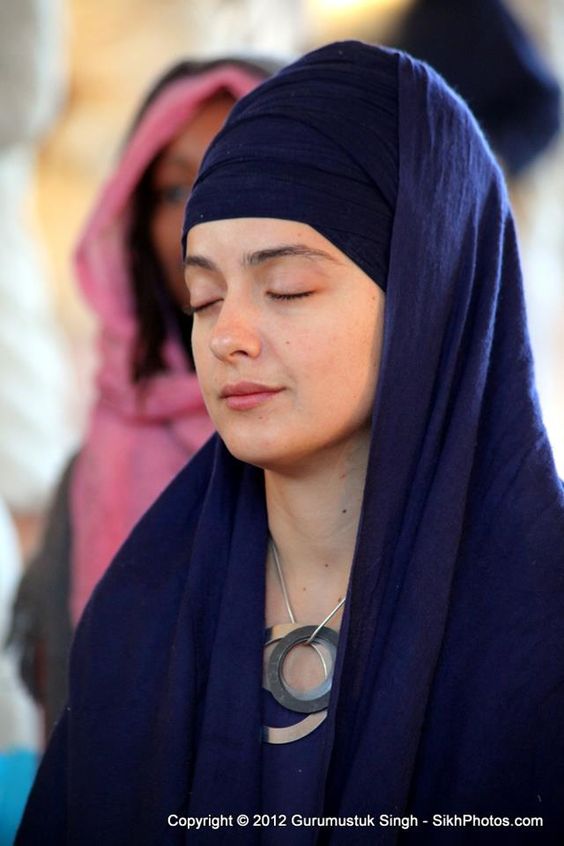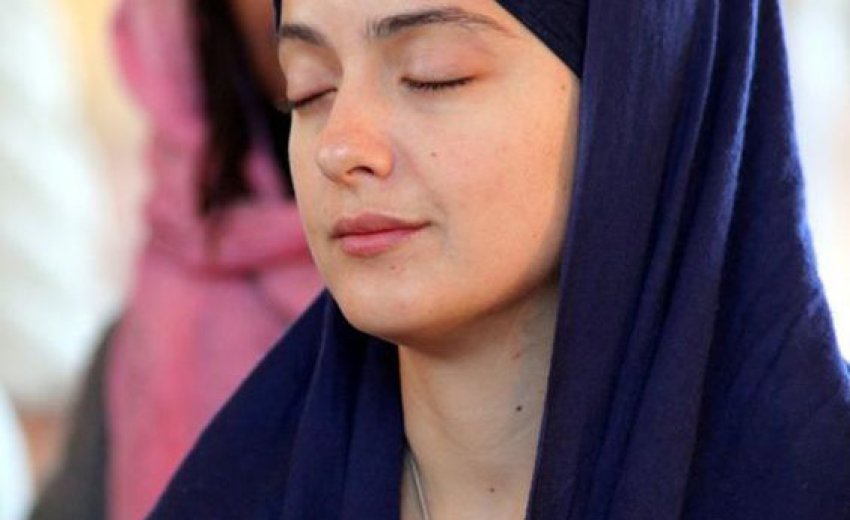Ever notice that, in most conversations, some people talk about people, others talk of things, but a very few talk of ideas.
May 13, 2016: The New York Times carried a brazen headline:
“Francis Panel Will Study If Women Can Be Deacons.”
Francis, of course, is the current Pope of the Roman Catholic Church, a religion 2,000 years old, with the largest number of adherents in the whole wide world.
If I were a Christian I would surely be gratified; as a Sikh I am somewhat amused and bemused, but way beyond being shocked or furious.
The Church has an enviable tradition of thinkers and philosophers ranging from the likes of Saint Thomas of Assisi and Saint Augustine, to modern scholars like Paul Tillich and Teilard de Chardin; also a slew of women saints along with a bureaucracy which has a long-standing system of governance. Imagine that, with such a rich past, the leadership and people are still debating the place and rights of women within their own religious environs in the 21st century!
Movement on women’s rights has been slow even in progressive societies. In the United States women got the right to vote only in 1920, a good 150 years after the birth of this nation. Until as recently as the 1970’s women and non-Whites were not easily admitted into many professional programs of study. Even today the idea of a woman as the nation’s president does not sit well with many. If she achieves nothing else, Hillary Clinton is assured of a place in history as the first woman to be nominated by a major political party for the office of the President of the United States in 2016.
Such regressive attitudes are not as rare as they should be. There is comfort in traditions but what exactly is tradition? It is an idea that has, over time, worked into the marrow of our bones; and then become a habit. Tradition holds us because it carries and conveys an overwhelming sense of touching history. For most of us history acquires life only through traditions. Also keep in mind that the longer a traditional idea has been around the harder it becomes to change or dislodge it. Such is human nature and it is not surprising.
Inherently, we don’t want to tinker with something that works. Why fix something that ain’t broken, asks an old adage. Such thinking gives us strength and creates stability and unity, but it can also become a fundamental weakness.
We need to upend and overhaul all our systems periodically, whether in science, religion, education, business or socio-political life. Even in the best made machines, parts tend to rust; non-moving parts more severely and faster. Our perspective increasingly suffers from Newtonian Inertia coupled with the Second Law of Thermodynamics that promises the pervasive presence of entropy in all systems; the result is time-related increase in systemic disorder.
In the battle of ideas old and new three possible fates come to mind:
- A new idea may ignite a fire – spur a revolution that inspires a new reality. But major changeover heralds dramatic, traumatic, even violent ends as it upends the existing order. Remember that inertia is the default position of the human mind, not revolution. The Soviet, Chinese and Cuban revolutions, among many others, bring that axiom home to us. And, with time, all revolutions slide into a comfortable existence and further changes to the existing order are strongly resisted, be it gender, racial or socio-economic issues. That’s what inertia and entropy do for us.
- Sometimes new realities demand changes but they happen through a process, not by sudden revolution but rather by gradual evolution. Like Darwinian biological evolution of the species, this occurs over generations, sometimes eons, but never overnight. The process is so gradual that we can deny it ever occurred; and many respectably honest minds continue to do so. Just look at the current inflammatory rhetoric over evolution where the naysayers are holding all reason captive. Similar logic, or lack thereof, prevails in the matter of climate change. It becomes easier to deny the evidence, presumably to preserve social order or personal stability. But ultimately suppression of ideas promotes disorder, inevitable chaos and errors in policy.
- The third alternative — killing an idea — should be the most disturbing, but it is the most powerful and heart-rending of the three. At times we can’t easily deny the evidence, but in the suffocating embrace of our built-in inertia, we cannot comfortably accept it. It then becomes honorable; even honest, to refer the matter to a Committee for study and recommendation. The more connected and credentialed the committee members, the better. It shows that we are searching for a considered, intelligent, informed decision not a hurried conclusion that might upend the existing social order. Such logic is often a soporific, a bromide more powerful than any while we keep on pretending that we are working on a super-difficult problem but remaining hopeful. As someone quipped, “a camel is a horse designed by a committee.”
That’s how I look at the dilemma facing Pope Francis. Now, 2,000 years after this problem on the role of women in the Church raised its ugly head, the Pope has referred the matter to a Committee. If human nature and history are any guides it may take a few generations. By then, time will have caught up with the realities and society might have already done or undone the committee’s mandate. Surely, we will all be dead by then.
My purpose is not to highlight the tactics and oddities of the Roman Catholic Church. I look at it today because this is the universal human condition. So let me, by one single simple stroke, connect you with our (Sikh) ways that are not at all different and remain equally wooly-headed.
 We Sikhs all know the lines from our scripture, the
Guru Granth Sahib, that categorically reject the second class place of women
found in traditional society, irrespective of the religious label. In this
matter, I’ll not dwell on the sorry record of Hinduism and Islam, and the many
other Indic religions. I’ll also spare
you the customary citations from the Guru Granth Sahib that argue for an equal
place for women; they are too well known.
We Sikhs all know the lines from our scripture, the
Guru Granth Sahib, that categorically reject the second class place of women
found in traditional society, irrespective of the religious label. In this
matter, I’ll not dwell on the sorry record of Hinduism and Islam, and the many
other Indic religions. I’ll also spare
you the customary citations from the Guru Granth Sahib that argue for an equal
place for women; they are too well known.
In a nutshell, let me just say that Sikhism promises an equal place to women but even today Sikhs have not delivered on that promise.
Even though many such examples exist, I rest my case today on an absolutely exact parallel in Sikhi to the dilemma facing Pope Francis.
The premier gurduara in India, the Amritsar-based Harmander Sahib (The Golden Temple) has never allowed women to sing the liturgy at that site. In the 1970’s, a one-time exception was made, a trio of Sikh American women were permitted to perform. But that has been the only occasion.
Some years ago, in a most progressive step, for the first time, the major body (SGPC) that manages historical Sikh places of worship in Punjab (India) and impacts gurduara management across the world appointed a woman (Jagir Kaur) as its President. Wonderful, wouldn’t you say? We thought regressive bans on women in the gurduara would soon become history.
Unfortunately, whether through her own actions or through a political assassination, her career ended under a cloud.
The petition to allow Sikh women to sing Sikh liturgy at the Harmander Sahib at Amritsar was then passed on to her male successor in office, Avtar Singh Makkar. He took the matter under advisement and referred it to a committee. Who were the members of the committee and how they were selected was never made public, nor was any deadline date for a recommendation. That was over a decade ago. A recommendation or report was never issued; the promise of one “very soon” is oft-repeated.
What a perfectly exact parallel to the paradox that Pope Francis faces today. I guess we are in good company.
I know time runs slowly in India but this, I submit, is the slow death of an idea by torture….
2016





